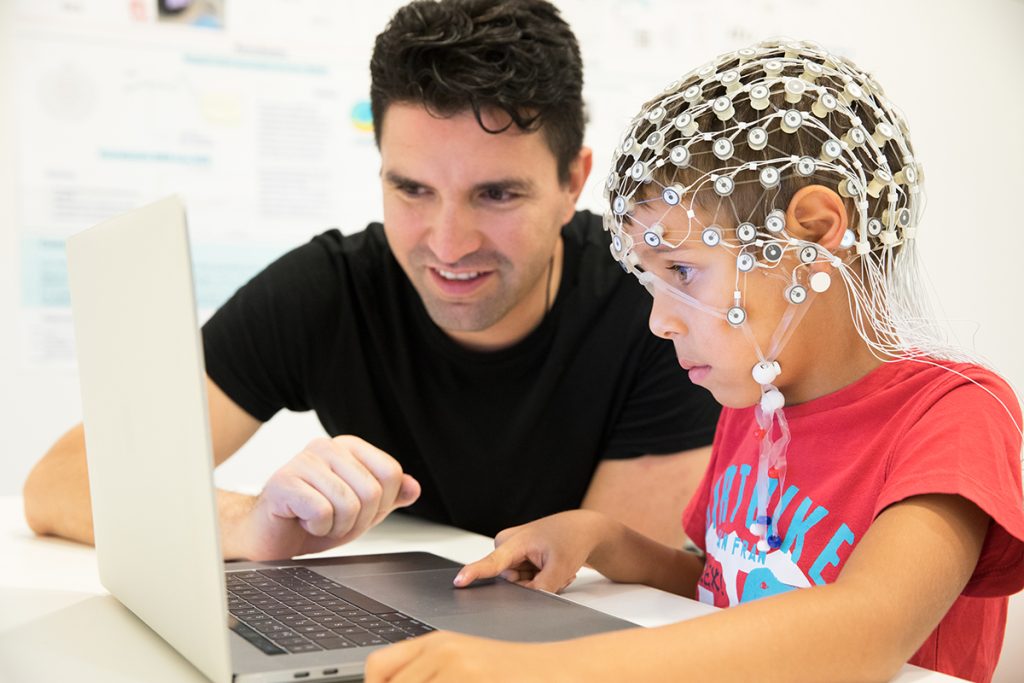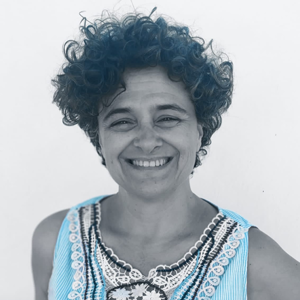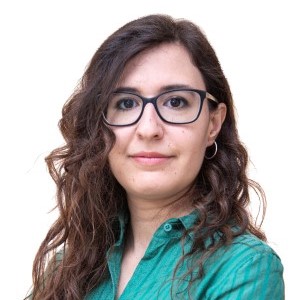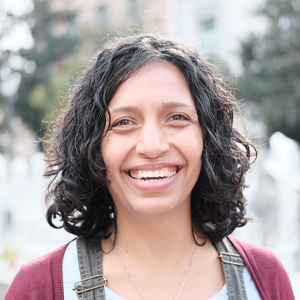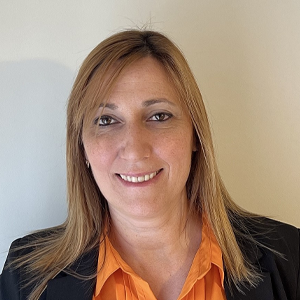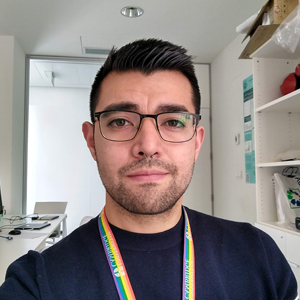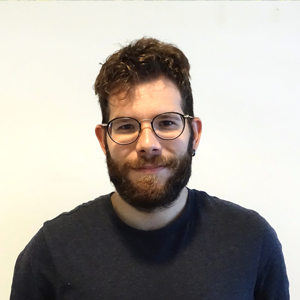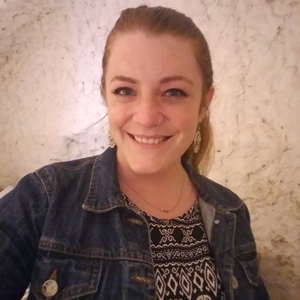Developmental Cognitive Neuroscience Lab
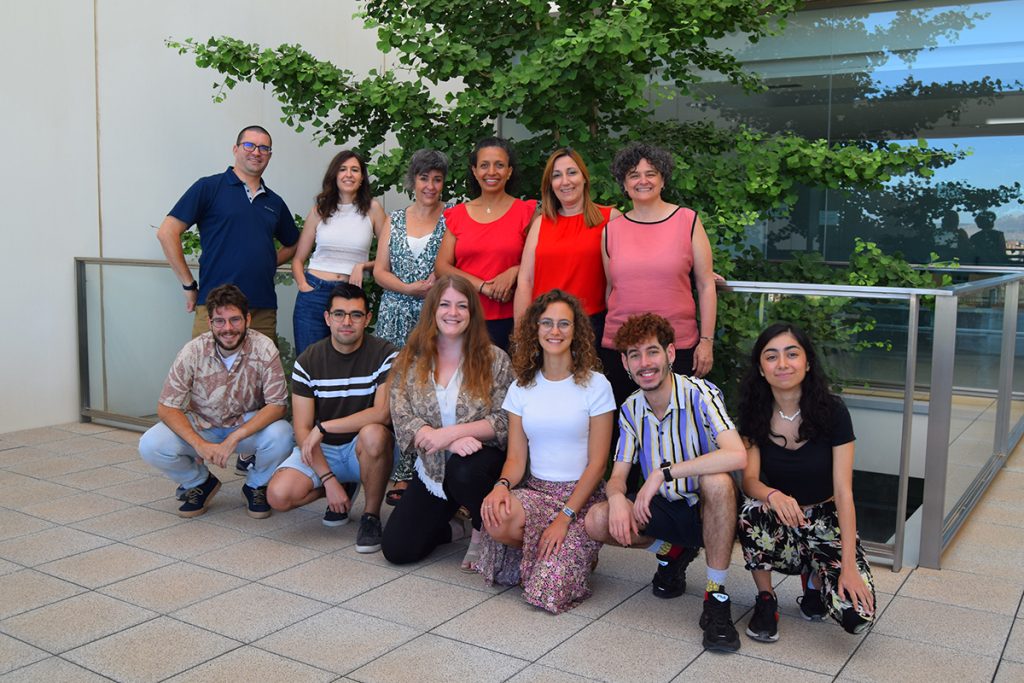
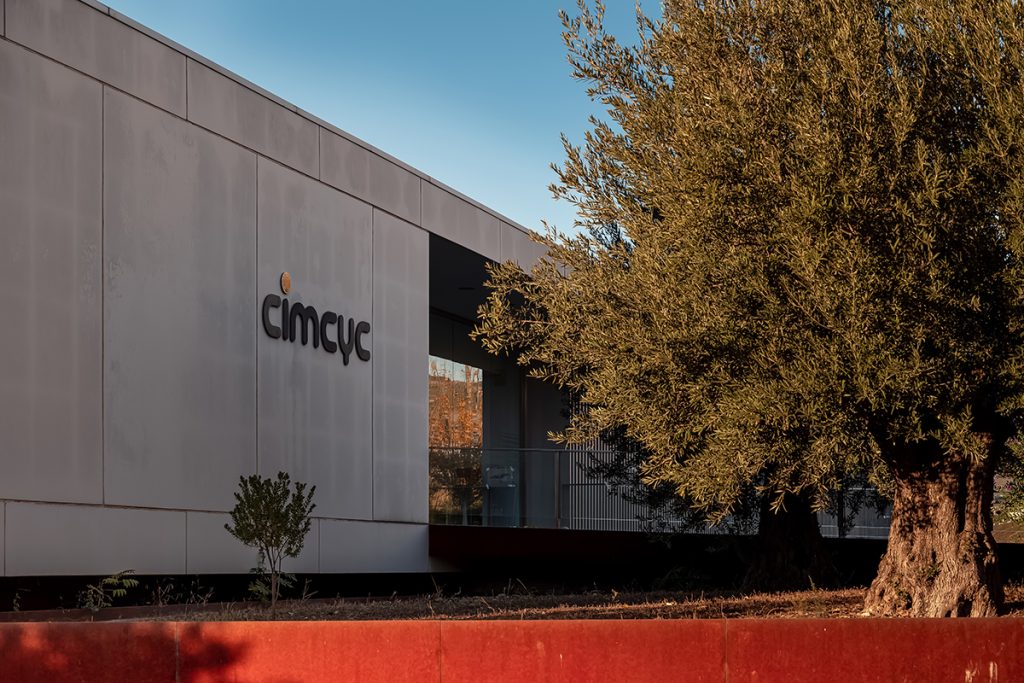
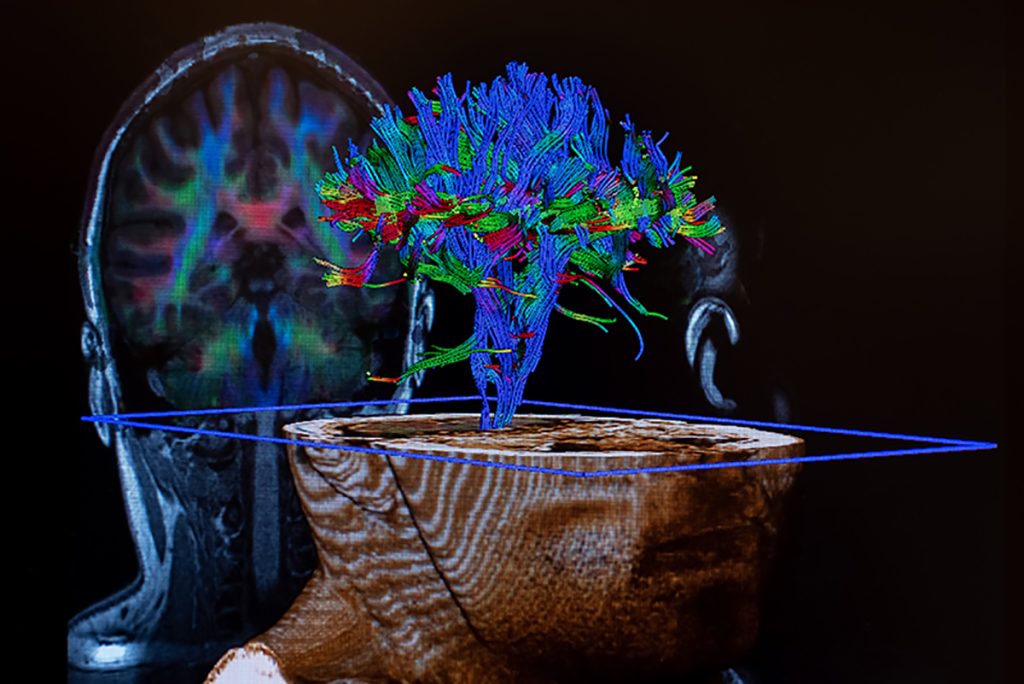
About us
The Developmental COGNITIVE NEUROSCIENCE Lab is located at the Mind Brain and Behavior Research Center (CIMCYC) of the University of Granada. In this lab we study the development of mind and brain with a focus on attention and self-regulatory processes. We use a variety of cognitive methods and brain imaging technology, including high-density EEG, eye-tracking, and magnetic resonance.

Team
Charo is Full Professor of Psychology at the University of Granada. She completed the PhD in Granada and expended several years of postdoctoral researcher at the Department of Psychology of the University of Oregon and the Sackler Institute for Developmental Psychobiology in New York. She has a broad interest in understanding the development of human cognition and the constitutional and educational factors that shape it.
Nines is professor of Psychobiology at the University of Granada. She has participated in several research projects on the neural mechanisms of learning and memory. Currently, she is a health psychologist, specialist in early childhood care and neurodevelopmental disorders. She is interested in the study of the development of attention and social cognition at an early age and is member of the University of Granada’s Psychology Clinic (CP-UGR).
Ángela is Assistant Professor at the University of Granada where she carried out her PhD on the early development of executive attention. During her PhD, she spent several months at the Centre for Brain and Cognitive Development (University of London). She is interested in understanding the neurocognitive development of executive attention during infancy and toddlerhood from a multidimensional perspective, including the use of EEG, eye tracking and behavioural methods.
Lina is a post-doctoral researcher at the University of Granada. She is interested on the study of the development of attention and self-regulation and how to boost children’s cognitive function through the means of cognitive training. Lina has co-founded Neuromindset, a Spin-off certified by the University of Granada committed to the development of science-based tools to improve children’s attention and executive functions.
Mariel completed a PhD in Psychology in Argentina and a second PhD in Educational Sciences at KU Leuven University (Belgium). She is currently working at the LadNCd with a Maria Zambrano Postdoctoral Fellowship. Mariel specializes on using machine learning approaches for the early prediction of attentional development and self-regulation. Mariel also has an appointment as Associate Researcher at the National Research Council in Argentina.
Sebastian completed his Master’s degree in Cognitive and Behavioural Neuroscience at the University of Granada. He is employing eye-tracking to study the development of visual attention control during infancy, toddlerhood and early childhood taking into account both temperamental and environmental factors. In his free time, he likes to devour series, plan future trips, buy unnecessary plants and go out for drinks with friends. He also spends time playing with machine learning and deep learning models.
Josué is a PhD candidate at the University of Granada in the Cognitive and Affective Neuroscience programme. He is applying graph theory and other mathematical methods to the analysis of high-density EEG data. He is interested in understanding how brain activity is linked to the emergence of cognitive processes in babies as well as the modulation due to environmental and educational factors. Josué loves absurd humour, running and listening to old-fashion songs.
Alana completed a master degree in Psychology of Social Intervention at the UGR in 2021 where she studied the association between socioeconomic status, the impact of the COVID-19 pandemic, and the development of executive functions in toddlers. She is now completing a second master degree in Cognitive and Behavioural Neuroscience. Alana is interested in the interaction between social and biological influences in cognitive processes and development.
Alumni
- Kepa Paz-Alonso, Post doc. Juan de la Cierva
- Puri Checa, PhD Graduate
- Alicia Abundis Gutiérrez, PhD graduate
- Ángela Hoyo Ramiro, PhD graduate
- Joan Paul Pozuelos, PhD graduate
Research
Equipment
Lab space
Our lab is located in the ground floor of the Mind Brain and Behaviour Research Center (CIMCYC) of the UGR (Lab 24, floor 0). We have rooms for testing and experimental control, as well as waiting/playing room with access to a patio with a beautiful ginkgo biloba tree. In addition, we have access to additional testing/evaluation rooms and equipment available to personnel of the CIMCYC.
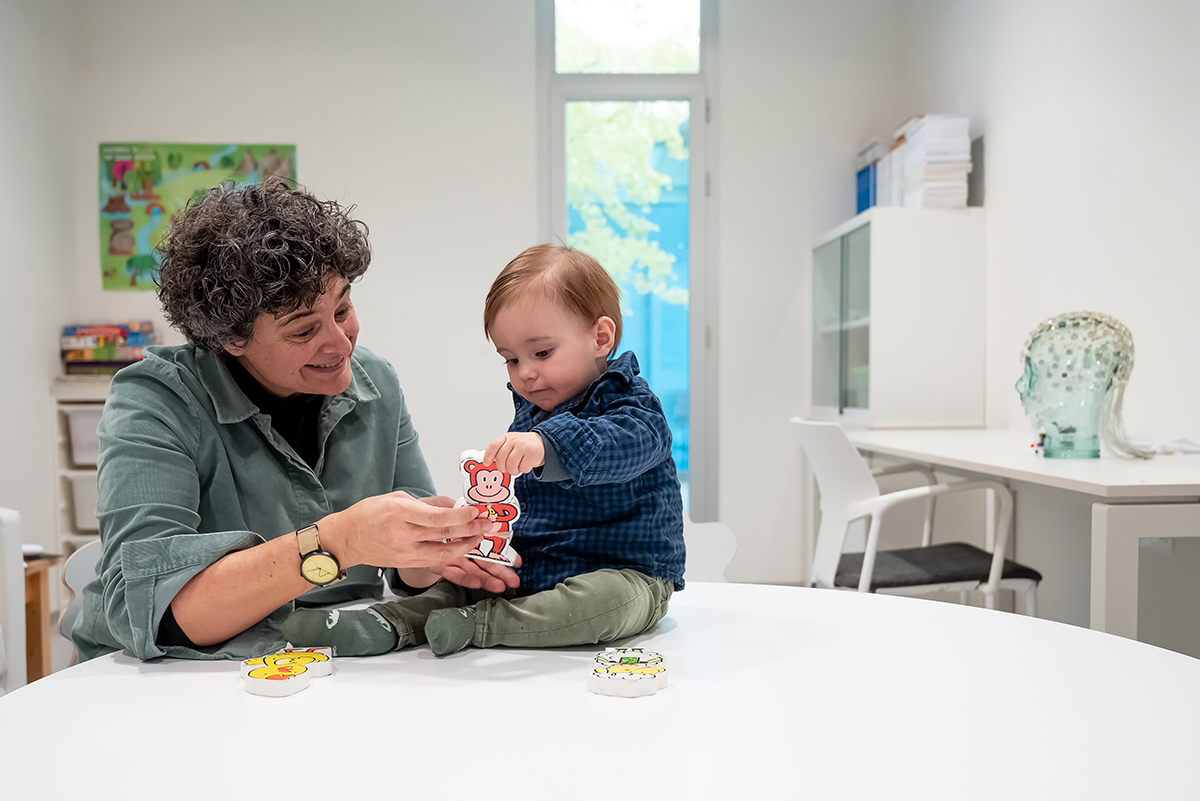
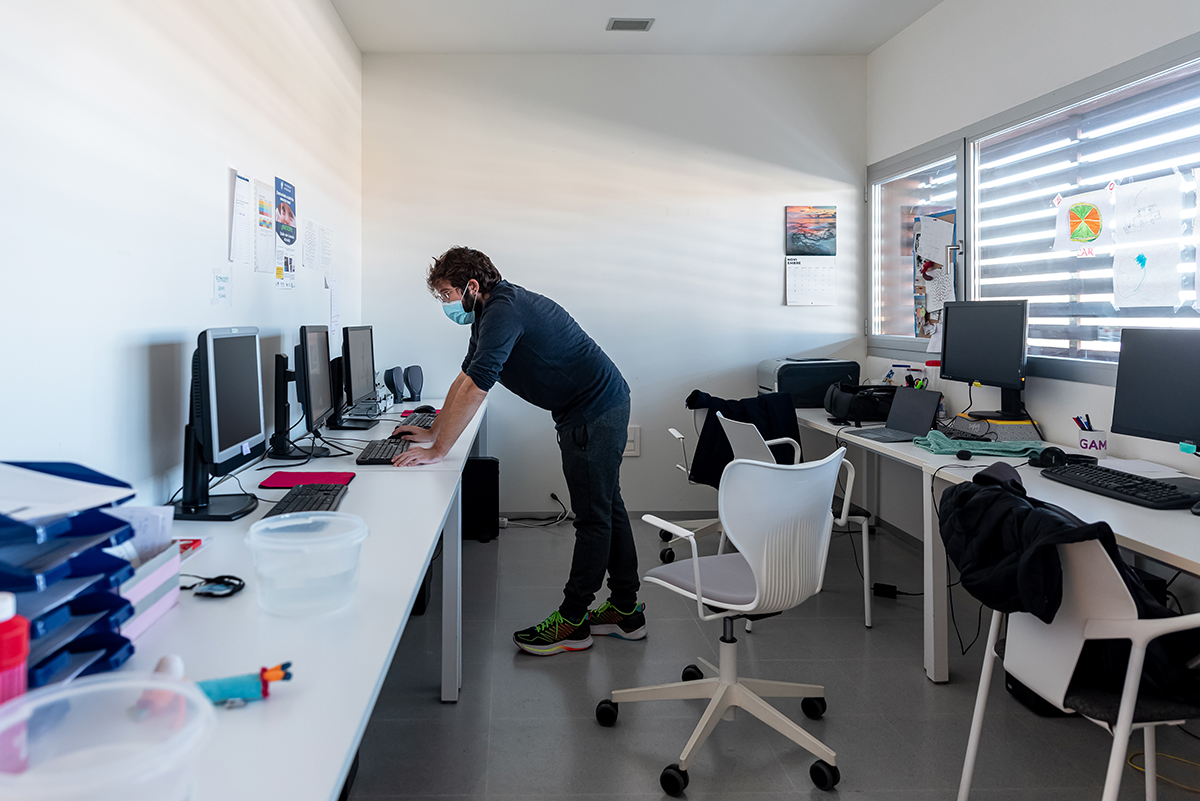
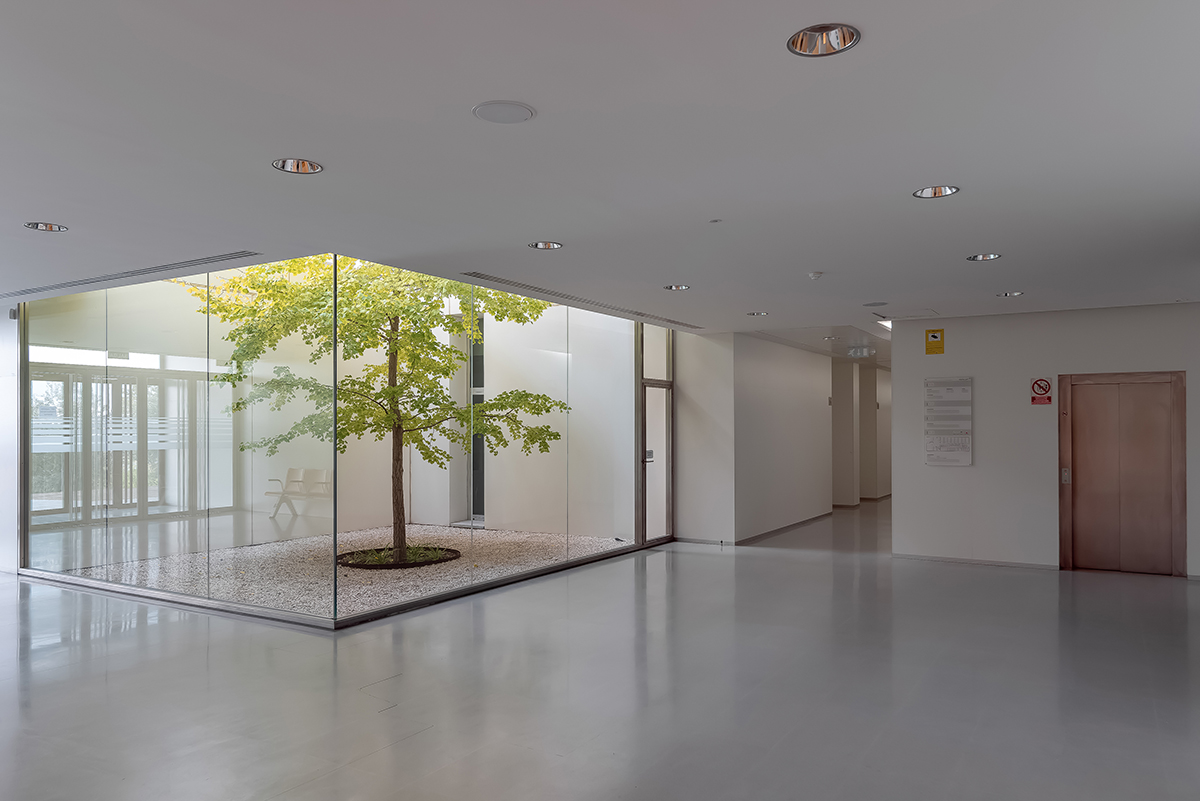
High-Density EEG
We have access to an electroencephalography system that can be used with 128-channel hydrogel nets. These nets are easy to use with infants and children, as well as adults. EEG is used to measure electric signals originated by neurons thru electrodes located in the surface of the head. It is a very safe technology widely used in cognitive neuroscience studies with pediatric populations.
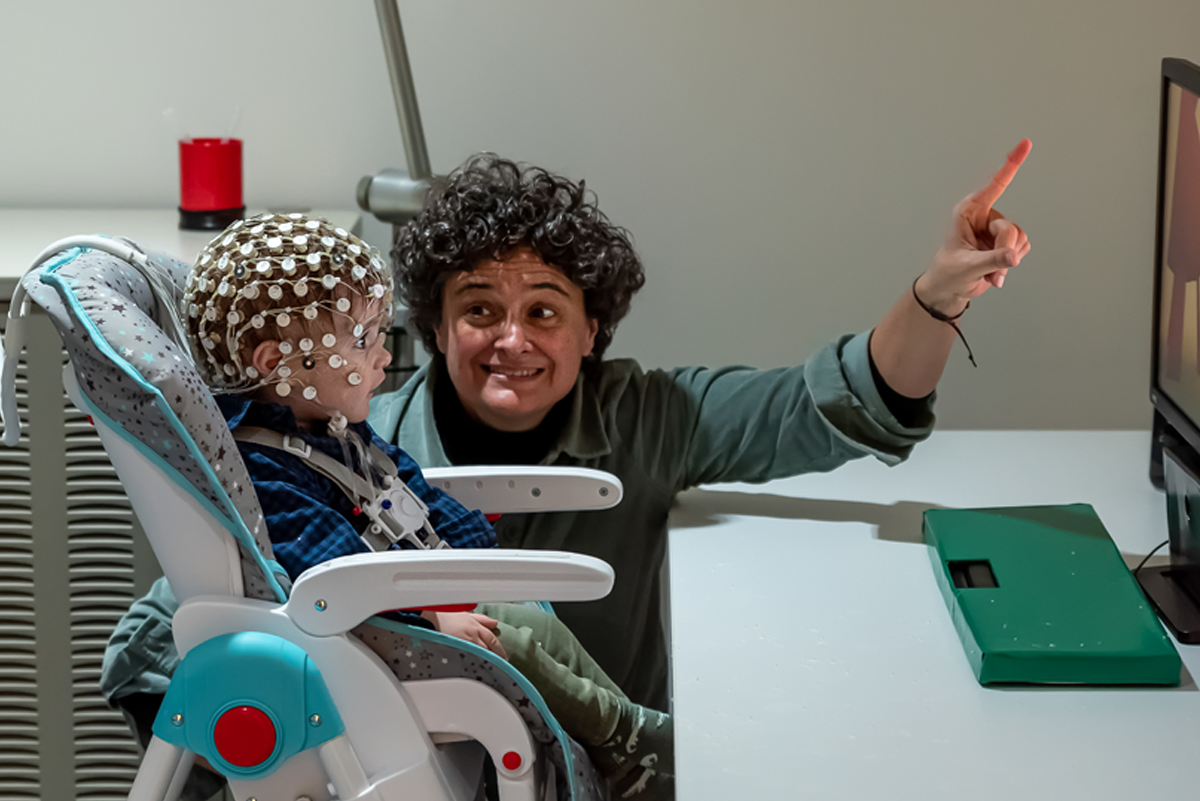
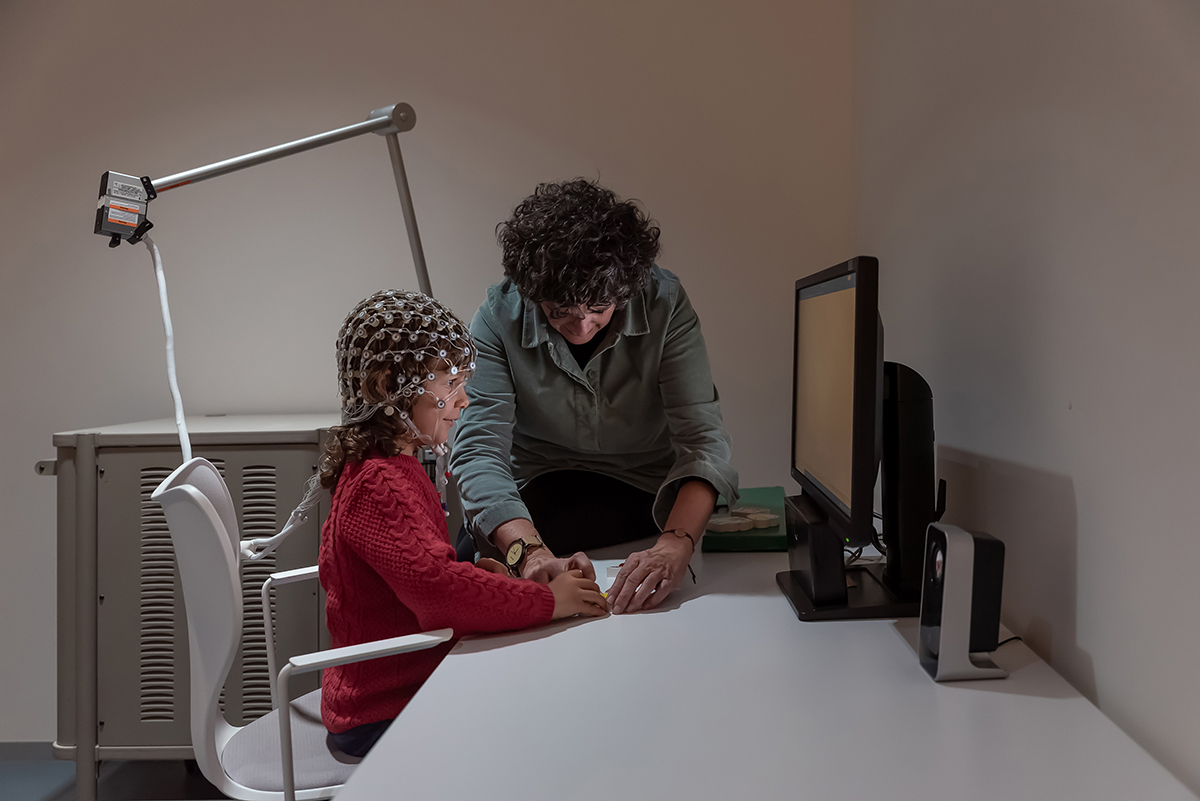
Magnetic Resonance Scanner
The CIMCYC is equipped with a 3T Siemens Magnetom Prisma MRI scanner that is located in the ground floor. The scanner is available for paediatric imaging research. With this technology we can create high-resolution 3D images of the brain structure in a few minutes. We can also measure brain activation (levels of oxygen consumption of different regions) at rest or linked to the performance of tasks inside the scanner.

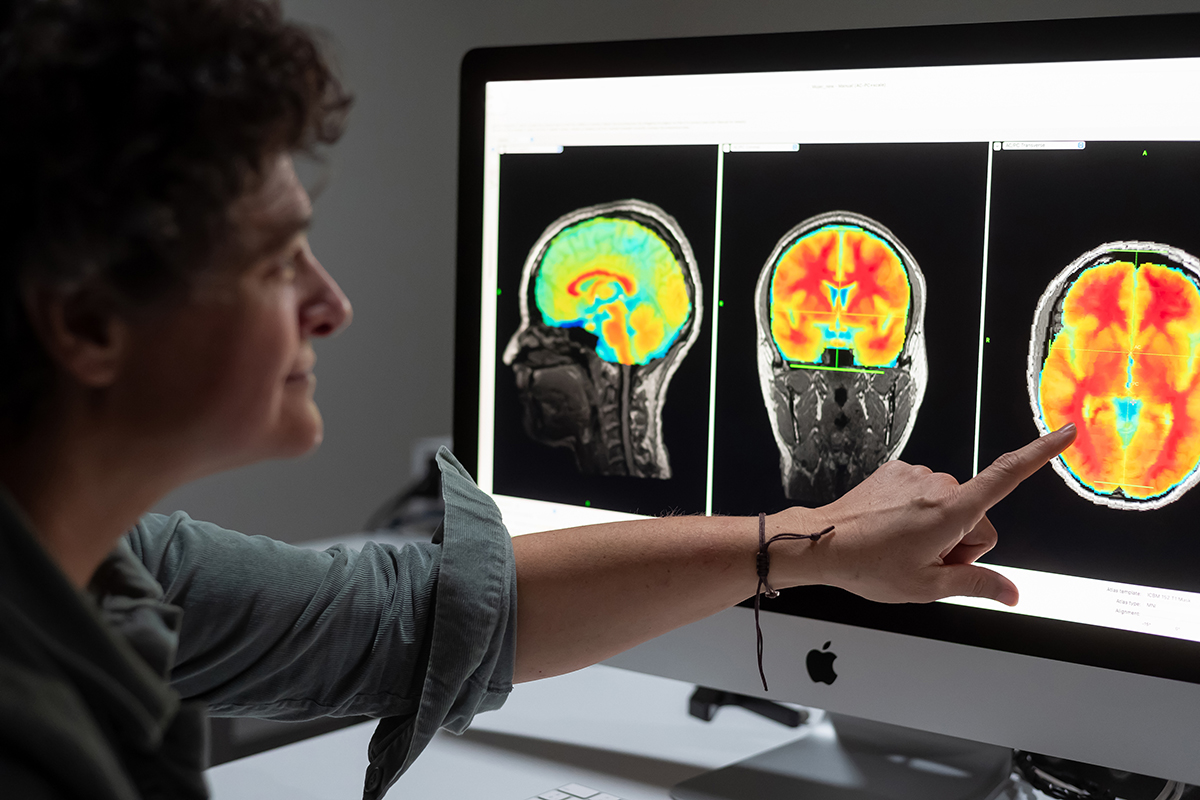
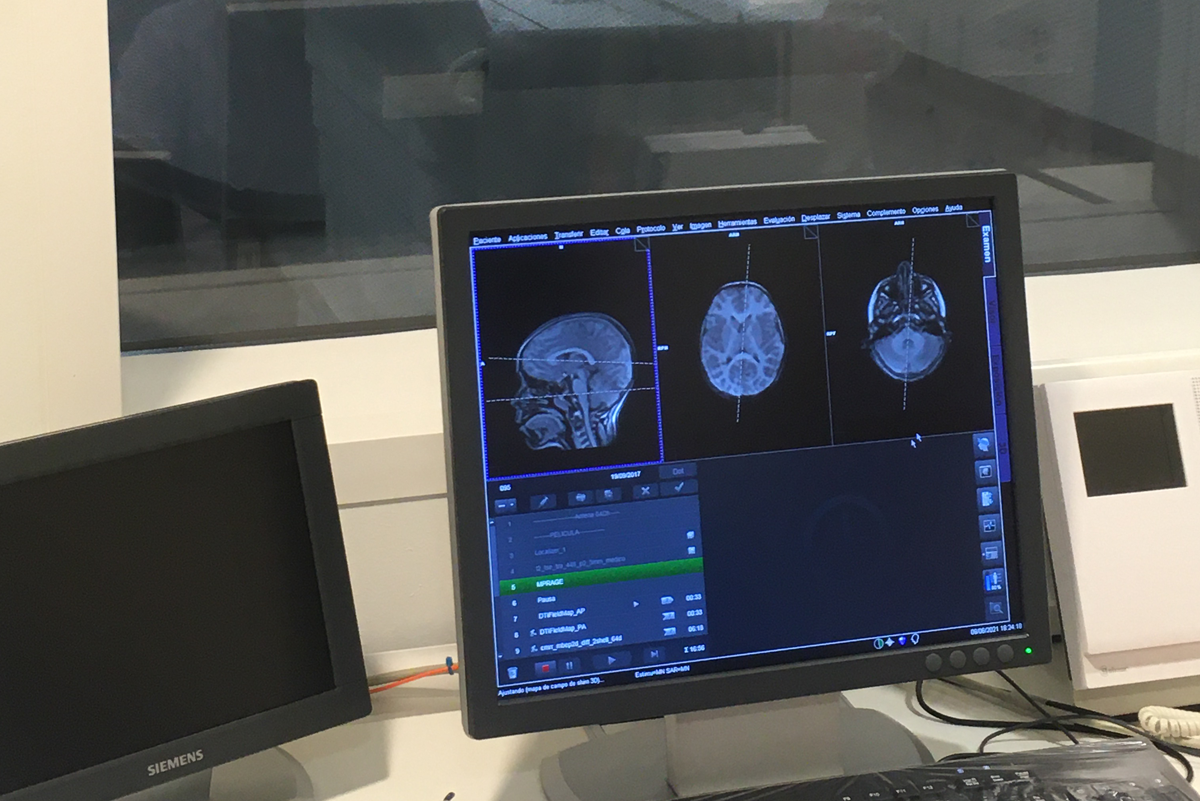
Eye-tracking devices
We use eye-tracking technology for monitoring of looking in infants and children. Tracking patterns of looking is very useful to study babies’ attention and learning skills. This technology provides precise measures of gaze direction and fixation, saccade latency and pupil dilation to displayed experimental conditions.
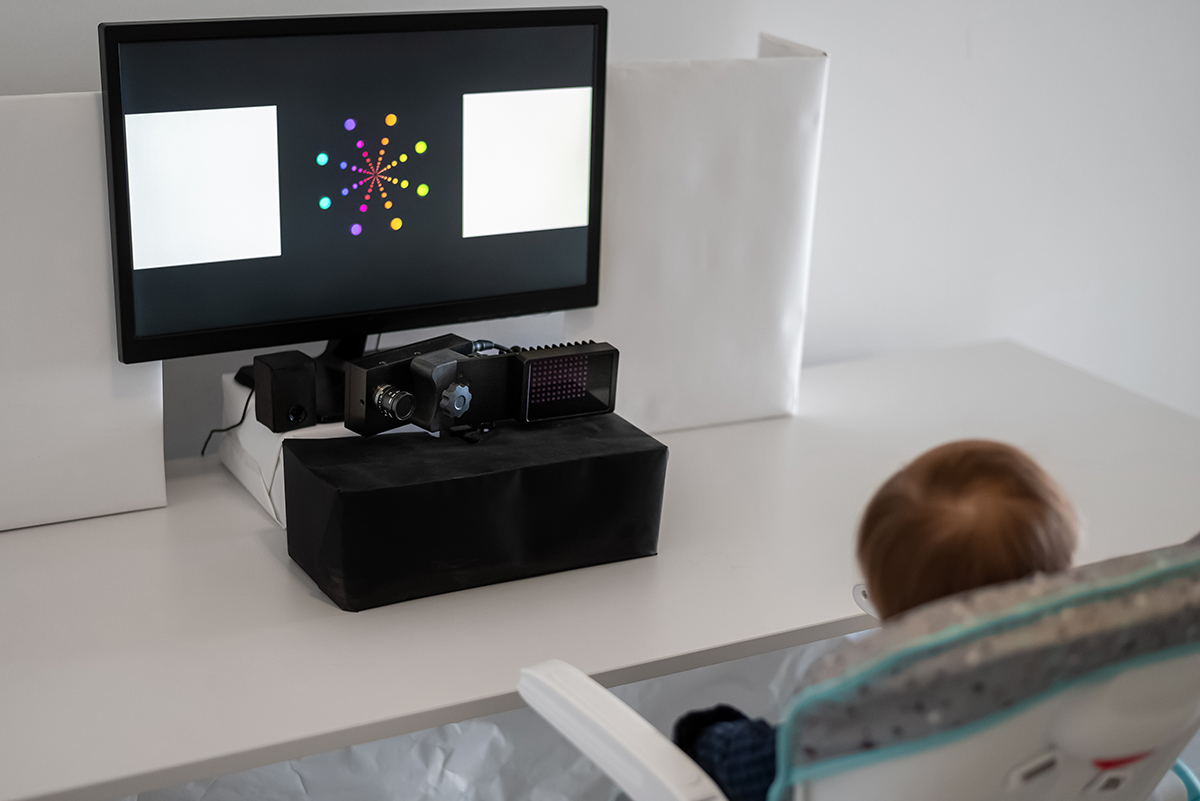
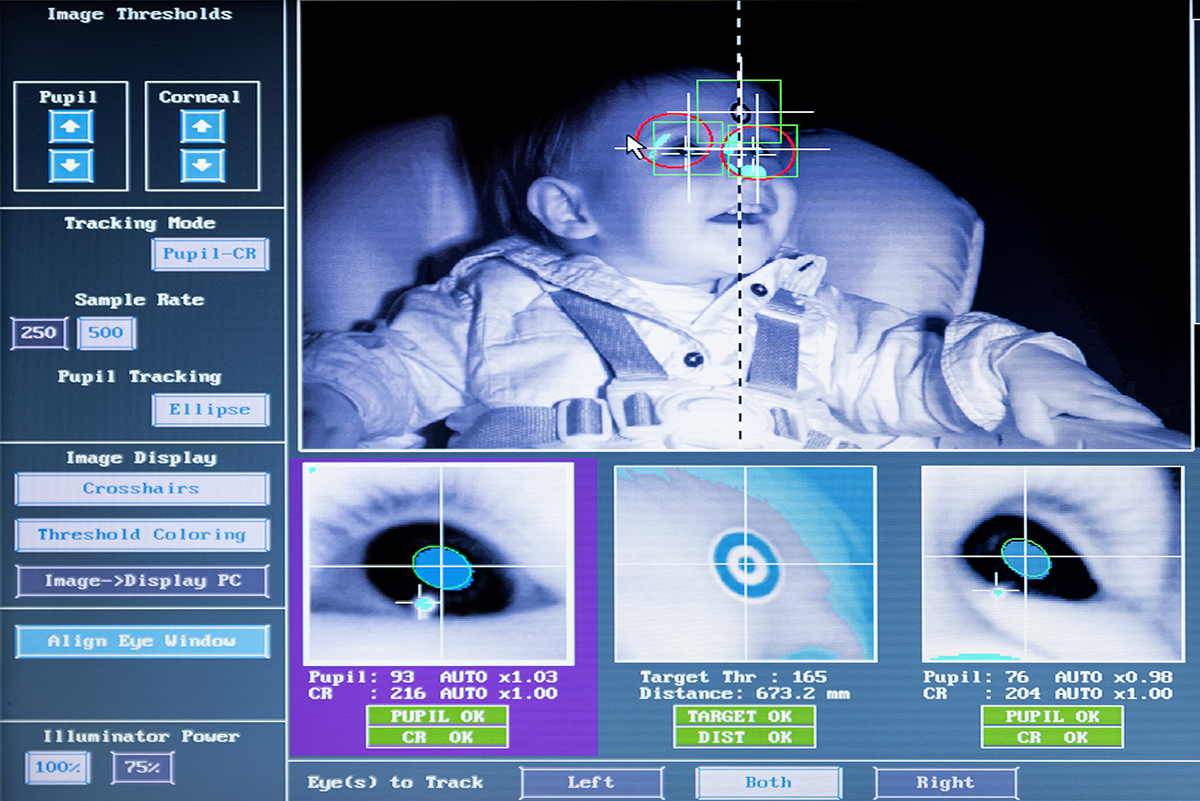
Current Projects
Early development of attention and self-regulation (BEXAT and EDEXAT projects)
This is a longitudinal project which main aim is to understand the early development of executive attention. The project started in 2017 with a sample of over 150 babies who have been evaluated in different testing sessions from 6 months to 4 years of age. This project is providing valuable information about brain and cognitive markers of the development of attention and its relation to self-regulation, as well as temperament and environment factors that modulate such development.
Funding
Spanish Research Agency (AEI) – Grant PSI2017-82670-P
Spanish Research Agency (AEI) – Grant PID2020-113996GB-I00
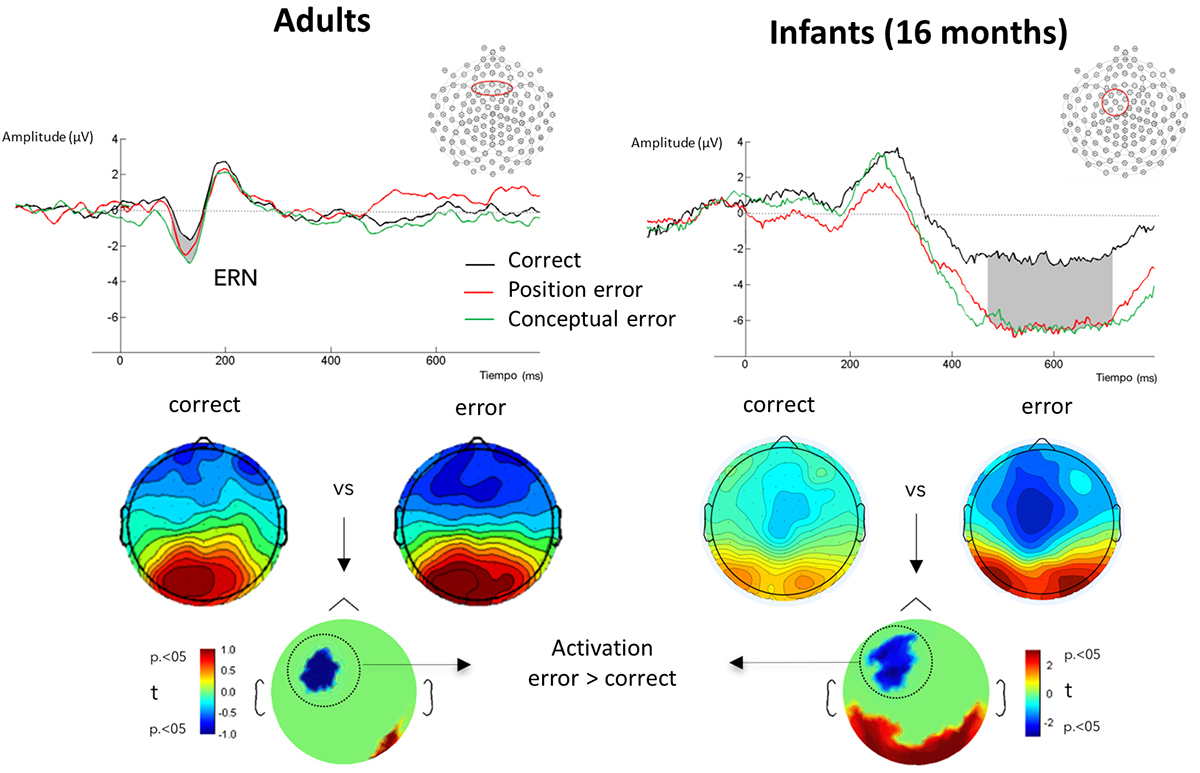
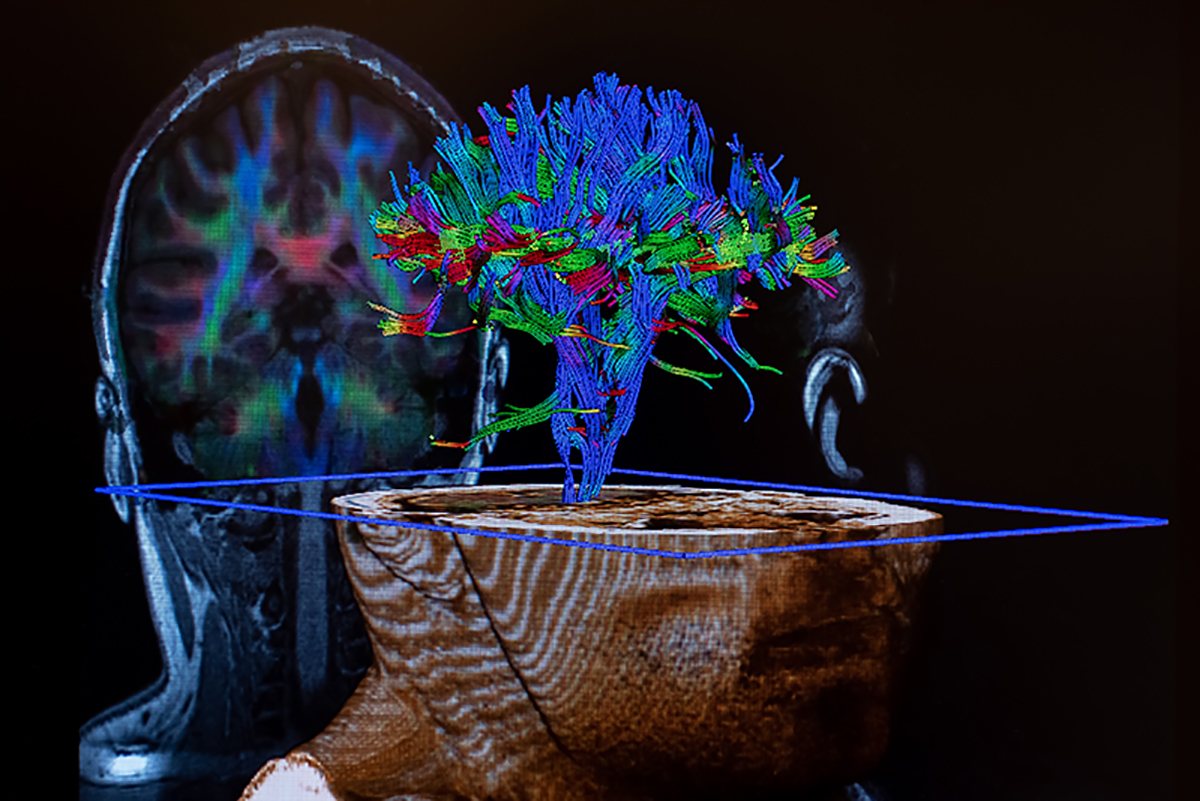
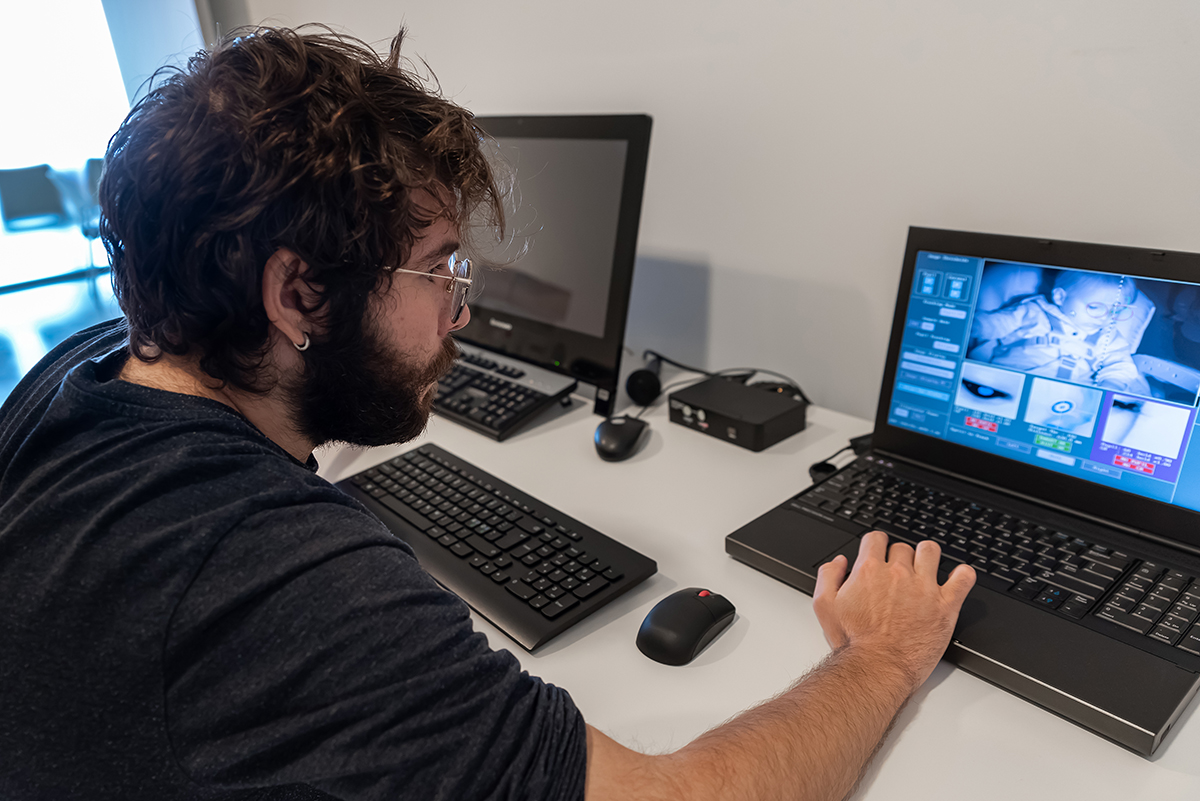
Early development of concious attention: functional and structural neural basis
In this project, we are analyzing infants’ ability to detect local or global (pattern) changes in auditory stimulation using EEG. Additionally, we are examining both the structural and functional changes that occur in the brain from 1 to 4 months of age using MRI. Our goal is to understand the functional and structural brain changes associated with infants’ ability to integrate information over time, serving as an early precursor to conscious attention.
In colaboration with Dr. Ana B. Chica Martínez
Funding
Regional Government of Andalucía, Projectos I+D+i; Ref. P21_00371
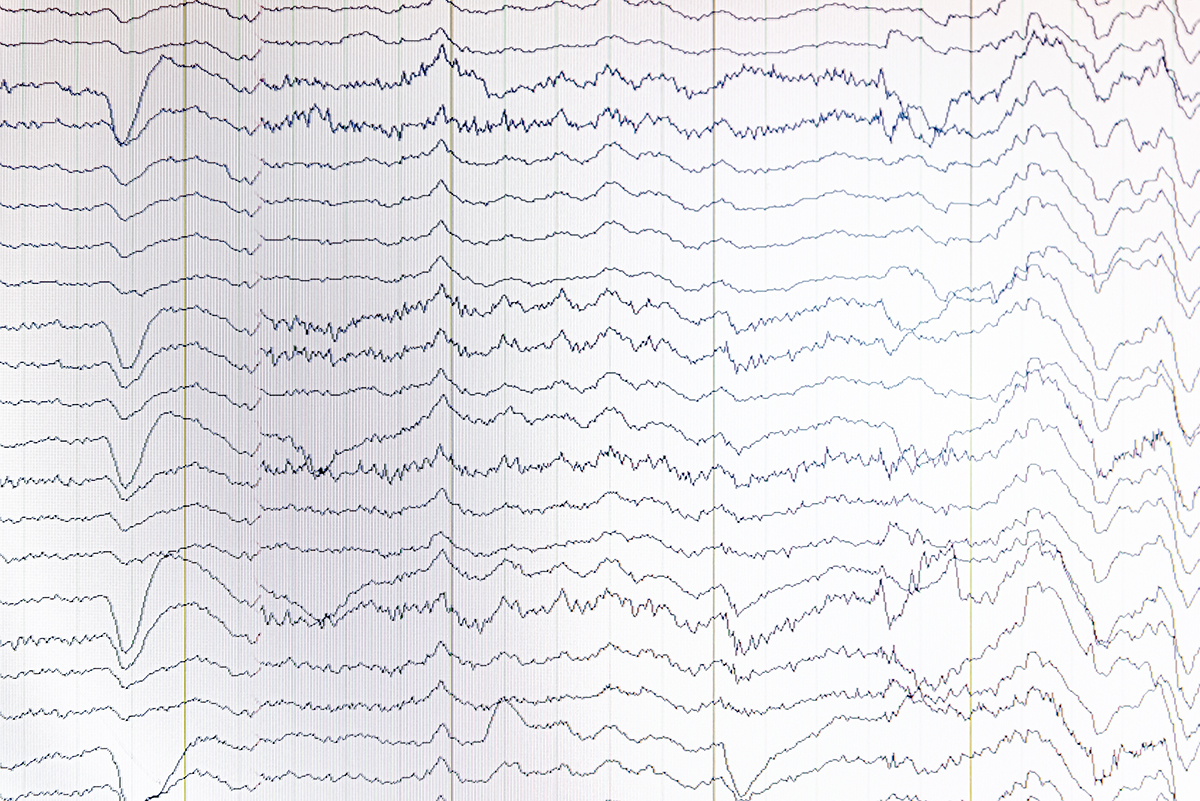
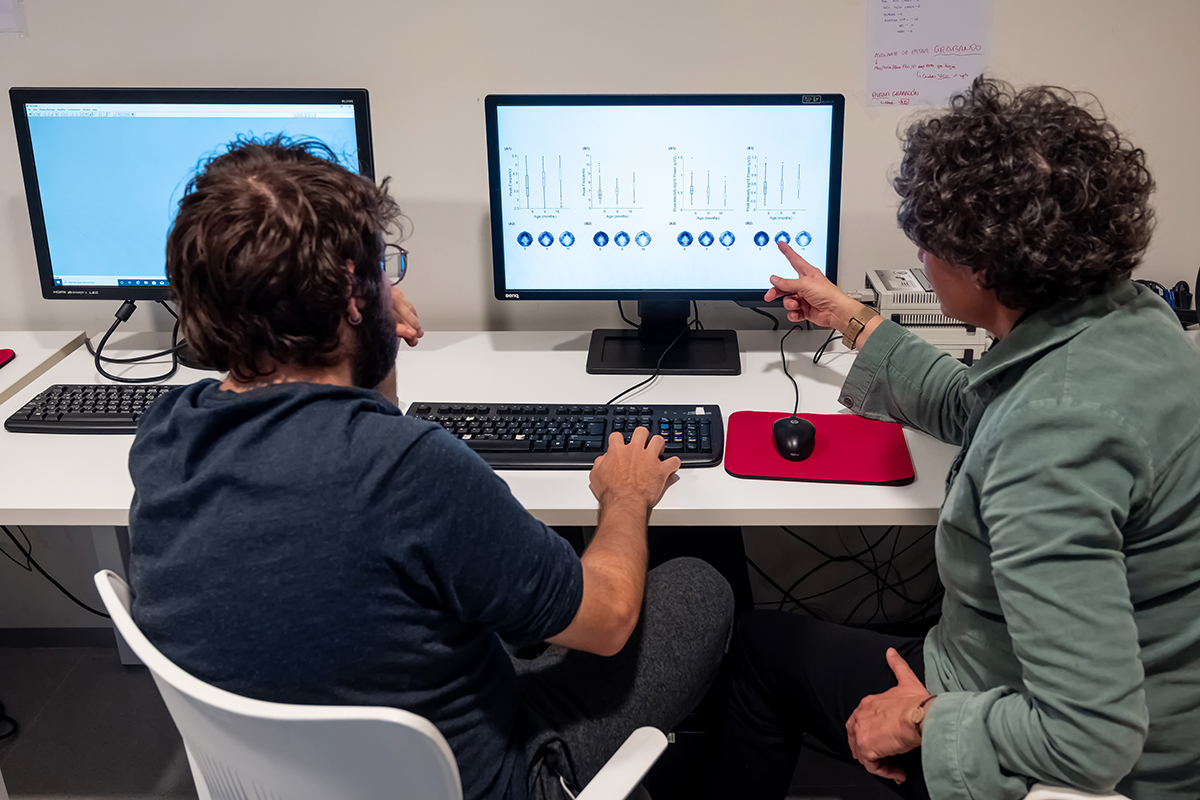
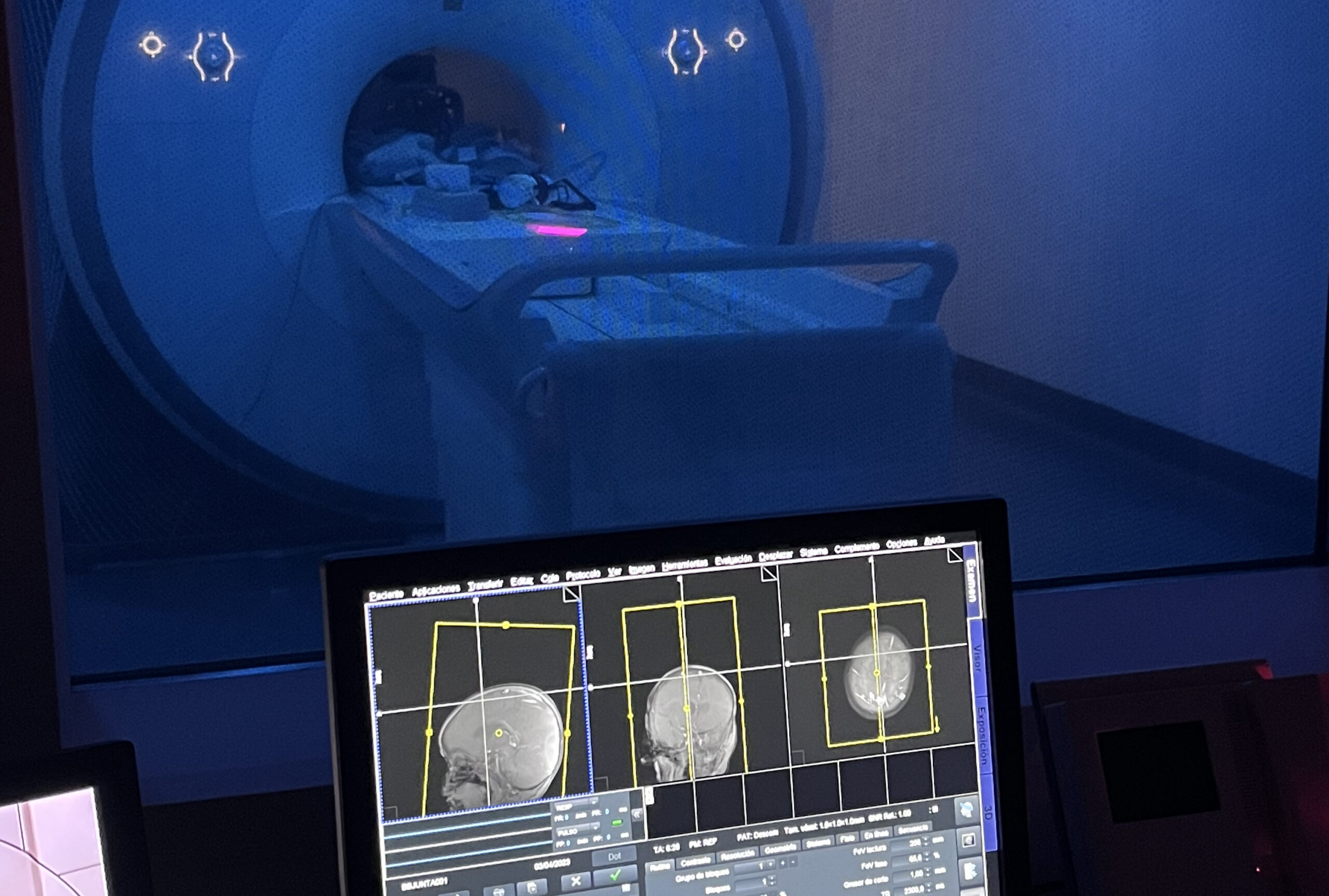
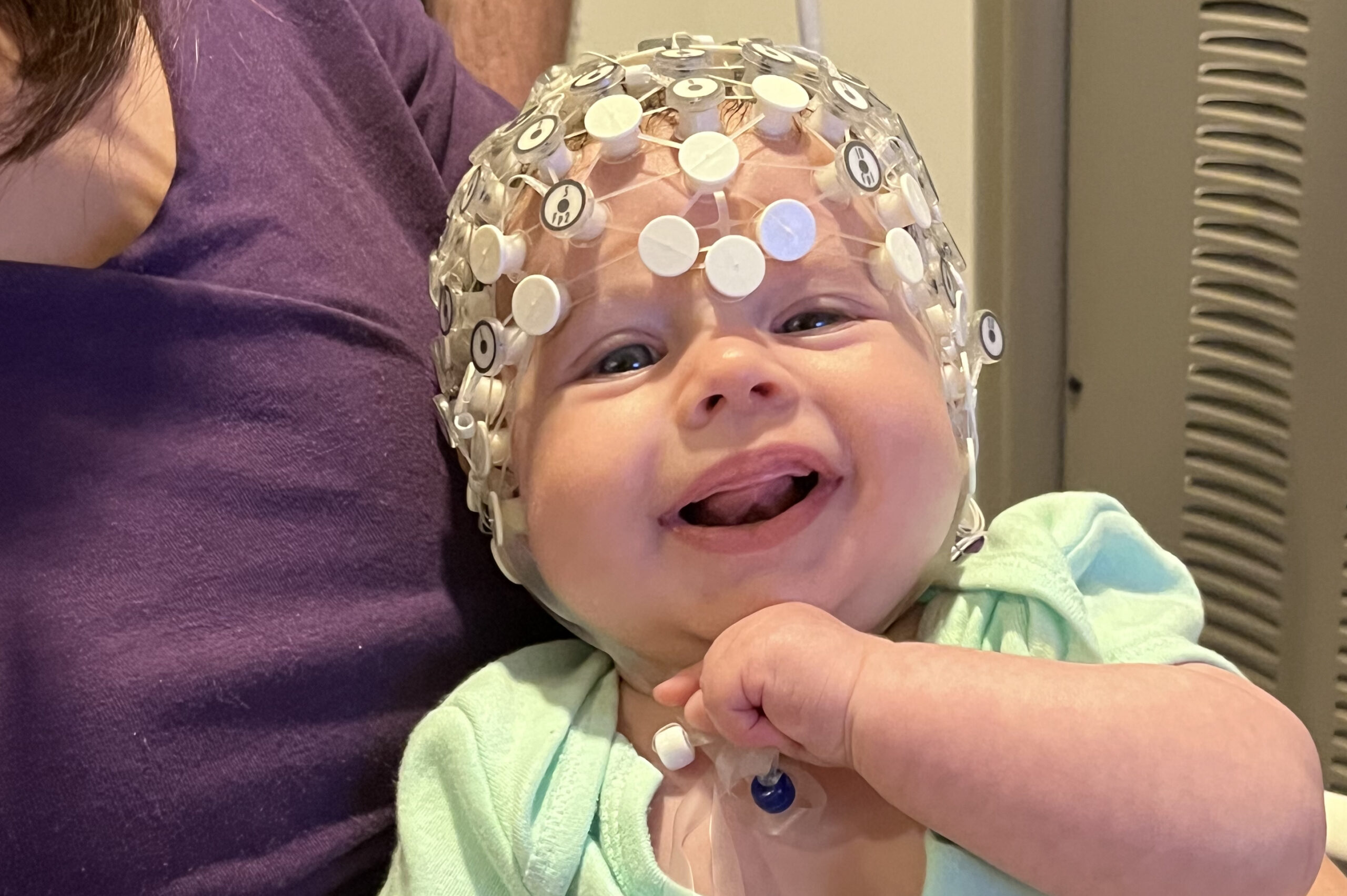
Publications
Rico-Picó, J., Moyano, S., Conejero, A., Hoyo, A., Ballesteros-Duperon, A., & Rueda, M. R. (2023) Early development of electrophysiological activity: Contribution of periodic and aperiodic components of the EEG signal. Psychophysiology, e14360 VIEW
Moyano, S., Rico-Picó, J., Conejero, A., Hoyo, A., Ballesteros-Duperon, A., & Rueda, M. R. (2023) Influence of the environment on the early development of attention control. Infant Behavior and Development, 71: 101842. VIEW
Conejero, A., Rico-Picó, J., Moyano, S., Hoyo, A., & Rueda, M. R. (2023) Predicting behavioral and brain markers of inhibitory control at preschool age from early measures of executive attention. Frontiers in Psychology, 14: 983361. VIEW
Musso, M., Moyano, S., Rico-Picó, J., Conejero, A., Ballesteros-Duperon, A., Cascallar, E.C. & Rueda, M. R. (2023) Predicting effortful control at 3 years of age from measures of attention and home environment in infancy: a machine learning approach. Children, 10: 982 VIEW
Edmunds, S. R., MacNaughton, G. A., Rueda, M. R., Combita, L.M., & Faja, S. (2022). Beyond group differences: Exploring the preliminary signals of target engagement of an executive function training for autistic children. Autism Research, 1–13. VIEW
Rueda, M. R., Moyano, S. & Rico-Picó, J. (2021) Attention: the grounds of self-regulated cognition. WIREs Cognitive Science; e1582 VIEW
Faja, S., Clarkson, T., Gilbert, R., Vaidyanathan, A., Greco, G., Rueda, M. R., Combita, L. M., & Driscoll, K. (2021). A preliminary randomized, controlled trial of executive function training for children with autism spectrum disorder. Autism. VIEW
Rico-Picó, J., Hoyo, A., Guerra, S., Conejero, A., & Rueda, M. R. (2021) Behavioral and brain dynamics of executive control in relation to children’s fluid intelligence. Intelligence, 84, 101513. DOI: VIEW
Rueda, M.R., Cómbita, L.M. & Pozuelos, J.P. (2021) Cognitive training in childhood and adolescence. In: T. Strobach & J. Karbach (Eds.) Cognitive Training. An overview of features and applications. 2nd Edition. Springer: Cham, Switzerland. DOI: VIEW
Rico-Picó, J., Moyano, S., Conejero, A., Hoyo, A., Ballesteros-Duperon, A., & Rueda, M. R. (2023) Early development of electrophysiological activity: Contribution of periodic and aperiodic components of the EEG signal. Psychophysiology, e14360 VIEW
Moyano, S., Rico-Picó, J., Conejero, A., Hoyo, A., Ballesteros-Duperon, A., & Rueda, M. R. (2023) Influence of the environment on the early development of attention control. Infant Behavior and Development, 71: 101842. VIEW
Conejero, A., Rico-Picó, J., Moyano, S., Hoyo, A., & Rueda, M. R. (2023) Predicting behavioral and brain markers of inhibitory control at preschool age from early measures of executive attention. Frontiers in Psychology, 14: 983361. VIEW
Musso, M., Moyano, S., Rico-Picó, J., Conejero, A., Ballesteros-Duperon, A., Cascallar, E.C. & Rueda, M. R. (2023) Predicting effortful control at 3 years of age from measures of attention and home environment in infancy: a machine learning approach. Children, 10: 982 VIEW
Edmunds, S. R., MacNaughton, G. A., Rueda, M. R., Combita, L.M., & Faja, S. (2022). Beyond group differences: Exploring the preliminary signals of target engagement of an executive function training for autistic children. Autism Research, 1–13. VIEW
Rueda, M. R., Moyano, S. & Rico-Picó, J. (2021) Attention: the grounds of self-regulated cognition. WIREs Cognitive Science; e1582 VIEW
Faja, S., Clarkson, T., Gilbert, R., Vaidyanathan, A., Greco, G., Rueda, M. R., Combita, L. M., & Driscoll, K. (2021). A preliminary randomized, controlled trial of executive function training for children with autism spectrum disorder. Autism. VIEW
Rico-Picó, J., Hoyo, A., Guerra, S., Conejero, A., & Rueda, M. R. (2021) Behavioral and brain dynamics of executive control in relation to children’s fluid intelligence. Intelligence, 84, 101513. DOI: VIEW
Rueda, M.R., Cómbita, L.M. & Pozuelos, J.P. (2021) Cognitive training in childhood and adolescence. In: T. Strobach & J. Karbach (Eds.) Cognitive Training. An overview of features and applications. 2nd Edition. Springer: Cham, Switzerland. DOI: VIEW
Rueda, M.R. (2020) Neuroeducation: Teaching with the brain. JONED Journal of Neuroeducation, 1(1); 108-113. DOI: VIEW
Rueda, M. R. & Conejero, A. (2020) Developing attention and self-regulation in infancy and childhood. In: J. Rubenstein & P. Rakic (Eds.) Neural Circuit and Cognitive Development: Comprehensive Developmental Neuroscience, 2nd Edition. Elsevier: London, UK (Chapter 23; pp. 505-517). DOI: VIEW
Hoyo, A., Rueda, M.R., & Rodriguez-Bailón, R. (2019) Children’s individual differences in executive function and theory of mind in relation to prejudice toward social minorities. Frontiers in Psychology, 10 (2293) VIEW
Pozuelos, J.P., Mead, B. R., Rueda, M. R., & Malinowski, P. (2019) Short-term mindful breath awareness training improves inhibitory control and response monitoring. Progress in Brain Research, 244: 137-163 VIEW
Pozuelos, J.P., Cómbita, L.M., Abundis-Gutiérrez, A., Paz-Alonso, P.M., Conejero A., Guerra, S., & Rueda, M.R. (2019) Metacognitive scaffolding boosts cognitive and neural benefits following executive attention training in children. Developmental Science, 22:e12756: 1-15; DOI: VIEW
Rueda, M.R. (2018) Attention in the heart of intelligence. Trends in Neuroscience and Education, 13: 26-33. DOI: VIEW
Conejero, A. & Rueda, M. R. (2018) Infant temperament and family socio-economic status in relation to the emergence of attention regulation. Scientific Reports, 8(1), 11232. VIEW
Conejero, A., Guerra, S., Abundis-Gutiérrez, A., & Rueda, M. R. (2018) Frontal theta activation associated with error detection in toddlers: Influence of familial socio-economic status. Developmental Science, 21: e12494 VIEW
Rueda, M.R. y Conejero A. (2017) Efectos de la pobreza en el cerebro del bebé. Mente y Cerebro, 85: 48-51
Conejero, A. & Rueda, M. R. (2017) Early Development of Executive Attention. Journal of Child and Adolescent Behaviour, 5: 341 VIEW
Rueda, M. R. (2017) Whither developmental intervention In: B. Hopkins, E. Geangu, & S. Linkenauger (Eds.) The Cambridge Encyclopedia of Child Development, 2nd. Ed. Cambridge University Press: Cambridge, UK; (pp.: 870-875) ISBN: 978- 1- 107- 10341- 2
Cómbita, L. M., Voelker, P., Abundis-Gutiérrez, A., Pozuelos, J. P., & Rueda, M. R. (2017) Influence of the SLC6A3-DAT1 gene on multifaceted measures of self-regulation in preschool children. Frontiers in Psychology, 8:26; VIEW
Rueda, M.R., Cómbita, L.M., & Pozuelos, J.P. (2016) Cognitive training in childhood and adolescence. In: Tilo Strobach & Julia Karbach (Eds.) Cognitive training: An overview of features and applications. Springer (pp.: 33-44) VIEW
Rueda, M. R., Conejero, A., & Guerra, S. (2016) Educar la Atención desde la Neurociencia. Pensamiento Educativo: Revista de Investigación Educacional Latinoamericana, 53 (1): 1-16 VIEW
Rueda, M. R., Defior, S., Paz-Alonso, P.M., & Arnedo, M. (2016) Neurociencia cognitiva del desarrollo. In: T. Bajo Molina, L. J. Fuentes Melero, J. Lupiáñez Castillo, & Ch. Rueda (Coords.) Mente y Cerebro: De la Psicología Experimental a la Neurociencia Cognitiva. Alianza Editorial: Madrid, Spain (pp. 503-530) ISBN: 978-84-9104-233-4
Bajo Molina, T., Fuentes Melero, L. J., Lupiáñez Castillo, J., & Rueda, Charo (Coords.) Mente y Cerebro: De la Psicología Experimental a la Neurociencia Cognitiva. Alianza Editorial: Madrid, Spain, 2016; ISBN: 978-84-9104-233-4
Rueda, M. R., Pozuelos, J. P., Guerra, S., & Paz-Alonso, P. M. (2016) El cerebro en la escuela: Entrenamiento computarizado de habilidades cognitivas. In: Sebastian J. Lipina, Mariano Sigman y Diego Fernandez Slezak (Eds.) Pensar las TIC desde las ciencias cognitivas y la neurociencia. Editorial Gedisa Editorial: BA, Argentina (ISBN: 978-84-16572-39-7)
Rueda, M. R., Pozuelos, J. P., & Combita, L. M. (2015) Cognitive neuroscience of attention: From brain mechanisms to individual differences in efficiency. AIMS Neuroscience, 2 (4): 183-202 VIEW
Pozuelos, J.P., Paz-Alonso, P.M., Castillo, A., Fuentes, L.J., & Rueda, M. R. (2014) Development of attention networks and their interactions in childhood. Developmental Psychology, 50 (10): 2405-2415 VIEW
Checa, P., Castellanos, M. C., Abundis-Gutiérrez, A., & Rueda, M. R. (2014) Development of neural mechanisms of conflict and error processing during childhood: Implications for self-regulation. Frontiers in Psychology, 5:326 VIEW
Abundis-Guitiérrez, A., Checa, P., Castellanos, C., & Rueda, M. R. (2014) Electrophysiological correlates of attention networks in childhood and early adulthood. Neuropsychologia, 57: 78-92 VIEW
Posner, M. I., Rothbart, M. K., & Rueda, M. R. (2014) Developing attention and self-regulation in childhood. In: K. Nobre & S. Kastner (Eds.) The Oxford Handbook of Attention. Oxford, UK: Oxford University Press (pp.541-569; Chapter 19). [ISBN: 978–0–19–967511–1]
Rueda, M. R. (2014). Development of attention. In: K. Ochsner & S. Kosslyn (Eds.) The Oxford Handbook of Cognitive Neuroscience (pp. 296-318; Chapter 15). New York: Oxford University Press. [ISBN: 978–0–19–538159–7]
Rueda, M. R. & Posner, M. I. (2013) Development of Attention Networks. In: P.D. Zelazo (Ed.) The Oxford Handbook of Developmental Psychology (pp. 683-705; Chapter 24). Oxford University Press. [ISBN: 978–0–19–995845–0]
Posner, M. I., Rothbart, M. K., & Rueda, M. R. (2013) Developing attention and self-regulation in infancy and childhood. In: J. Rubenstein & P. Rakic (Eds.) Neural Circuit Development and Function in the Brain: Comprehensive Developmental Neuroscience, Vol.3. Elsevier Science (Chapter 59; pp. 395-412). [ISBN: 978-0-12-397267-5]
Rueda, M.R., Paz-Alonso, P.M. (2013) Executive function and emotional development. J.B. Morton, (Topic ed.) In: R.E. Tremblay, M. Boivin & R.deV. Peters (Eds.) Encyclopedia on Early Childhood Development [online]. Montreal, Quebec: Centre of Excellence for Early Childhood Development and Strategic and Knowledge Cluster on Early Child Development (pp. 1-7). Available at: VIEW
Rueda, M. R. & Cómbita, L. M. (2013) The nature and nurture of executive attention development. In: Karr, B. (Eds.) Cognition and Brain Development: Converging Evidence from Various Methodologies (pp. 33-59) APA: Brain Development Series. VIEW
Rueda, M. R. (2012). Effortful Control. In: M. Zentner & R. Shiner (Eds.) Handbook of Temperament (pp. 145-167, Chapter 8). New York: Guilford Press. ISBN: 978-1-4625-0648-4
Rueda, M. R. & Cómbita, L. M. (2012) Best practices in the development of effortful control in early childhood. In: Tremblay, R. E., Boivin, M., Peters R. DeV. (Eds.) Encyclopedia on Early Childhood Development [online]. Montreal, Quebec: Centre of Excellence for Early Childhood Development; 1-7. Available at: VIEW
Rueda, M. R., Checa, P. & Cómbita, L. M. (2012) Enhanced efficiency of the executive attention network after training in preschool children: Immediate changes and effects after two months. Developmental Cognitive Neuroscience, 2S: S192-S204
Posner, M. I., Rothbart, M. K. & Rueda, M. R. Desarrollo de la auto-regulación y el desempeño escolar (2011) En: S. Lipina & M. Sigman (Eds.) La pizarra de Babel: Puentes entre neurociencia, psicología y educación. Buenos Aires, Argentina: Libros del Zorzal (pp.133-152). ISBN: 978-987-599-196-5
Checa, P. & Rueda, M. R. (2011) Behavioral and brain measures of attention control predict schooling competence in late childhood. Developmental Neuropsychology, 36(8): 1-15
Rothbart, M. K., Sheese, B. E., Rueda, M. R. & Posner, M. I. (2011) Developing mechanisms of self-regulation in early life. Emotion Review, 3(2): 207- 213. VIEW
Rueda, M.R., Posner, M.I & Rothbart, M. K. (2011) Attentional control and self-regulation. In: K.D. Vohs & R.F. Baumiester (Eds.) Handbook of Self-regulation 2nd Edition: Research, Theory and Applications. New York: Guilford Press. (pp. 284-299) ISBN 978-1-60623-948-3
Rueda, M.R. Checa, P. & Rothbart, M. K. (2010) Contributions of attentional control to socioemotional and academic development. Early Education and Development, 21(5): 744-764. VIEW
Posner, M.I., Rothbart, M. K., Rueda, M. R. & Tang, Y. (2010) Training effortless attention. In: B. Bruya (Ed.) Effortless Attention: A New Perspective in the Cognitive Science of Attention and Action. MIT Press (pp. 410-424)
Rueda, M.R. (2010) Using the brain to understand the developing mind: Commentary on the article “Where Developmental Psychology and Neuroscience meet: A threatening or a felicitous encounter?” by María José Rodrigo. Infancia y Aprendizaje, 33 (1): 35-39.
Rueda, M. R. & Rothbart, M. K. (2009) Influence of Temperament on the Development of Coping. In E. A. Skinner & M. J. Zimmer-Gembeck (Eds.), Coping and the Development of Regulation. New Directions in Child and Adolescent Development, 124, pp. 19-31. San Francisco: Jossey-Bass. VIEW
Rothbart, M.K., Posner, M.I., Rueda, M. R., Sheese, B.E. & Tang, Y. (2009) Enhancing Self-Regulation in School and Clinic. In: D. Cicchetti & M. Gunnar (Eds.) Minnesota Symposium on Child Psychology Vol. 35: Meeting the challenge of translational research in Child Psychology. Hoboken N.J.: John Wiley. (pp. 115-157)
Checa, P., Rodriguez-Bailon, R. & Rueda, M. R. (2008) Neurocognitive and temperamental systems of self-regulation and early adolescents’ social and academic outcomes. Mind, Brain & Education, 2(4): 177-187
Posner, M. I., Rothbart, M. K. & Rueda M. R. (2008) Brain mechanisms and learning of high-level skills. In: A.M. Battro, K.W. Fisher and P. J. Léna (Eds.), The Educated Brain. Essays in Neuroeducation. (pp. 151-165) Cambridge, UK: Cambridge University Press. (ISBN: 978-0-521-87673-5)
Rueda, M. R., Acosta, A., & Santonja, M. (2007). Attention and motivation interdependence in self-regulation. A neurocognitive approach. In L. V. Brown (Ed.), Psychology of motivation (pp. 29-45). Hauppauge, NY, US: Nova Science Publishers.
Simonds, J., Kieras, J. E., Rueda, M. R., & Rothbart, M. K. (2007) Effortful control, executive attention and emotional regulation in 7-10 years old children. Cognitive Development, 22(4): 474-488.
Posner, M. I., Rueda, M. R. & Kanske, P. (2007) Probing the mechanisms of attention. In: J.T. Cacioppo, J.G. Tassinary & G.G. Berntson (Eds.) Handbook of Psychophysiology. 3er Edition. Cambridge, UK: Cambridge University Press. Pp: 410-432.
Rueda, M. R., Rothbart, M. K., Saccomanno, L. & Posner, M. I. (2007) Modifying brain networks underlying self-regulation. In: D. Romer & E.F. Walker (Eds.) Adolescent Psychopathology and the Developing Brain. Integrating Brain and Prevention Science. New York, NY: Oxford University Press. (pp. 401-419)
Rothbart, M. K. & Rueda, M. R. (2005) The development of effortful control. In: U. Mayr, E. Awh and S. W. Keele (Eds.) Developing individuality in the human brain: A tribute to Michael I. Posner. Washington, DC: American Psychological Association. Pp: 167-188. (ISBN: 1-59147-210-5).
Rueda, M. R., Fuentes, L. J., Holtz, F. C. & Kanske, P. (2005) La red de alerta: componentes fásicos (preparación) y tónicos (vigilancia). In: Atención y Procesamiento. Valencia: Fundación Universidad-Empresa.
Rueda, M. R., Posner, M. I. & Rothbart, M. K. (2005) The Development of Executive Attention: contributions to the emergence of Self-Regulation. Developmental Neuropsychology, 28(2): 573-594.
Rueda, M. R., Rothbart, M. K., McCandliss, B. D., Saccomanno, L. & Posner, M. I. (2005) Training, maturation and genetic influences on the development of executive attention. Proceedings of the National Academy of Sciences of the USA, 102(41): 14931-14936.
Rueda, M. R., Fan, J., McCandliss, B. D., Halparin, J., Gruber, D., Pappert, L. & Posner, M. I. (2004) Development of attentional networks in childhood. Neuropsycologia, 42: 1029-1040.
Rueda, M. R., Posner, M. I., Rothbart, M. K., & Davis-Stober, C. P. (2004). Development of the time course for conflict processing. An event-related potentials study with 4 year olds and adults. BMC Neuroscience, 5: 39. VIEW
Rueda, M. R., Posner, M. I., & Rothbart, M. K. (2004) Attentional control and self-regulation. In: R.F. Baumiester & K.D. Vohs (Eds) Handbook of Self-regulation Research. New York: Guilford Press, pp. 283–300 (Chapter 14)
Rothbart, M. K., Ellis, L. K., Rueda, M. R., & Posner, M. I. (2003). Developing mechanisms of conflict resolution. Journal of Personality, 71(6): 1113-1143.
Posner, M. I. & Rueda, M. R. (2002). Mental chronometry in the study of individual and group differences. Journal of Clinical and Experimental Neuropsychology, 24: 968-976
Rueda, M. R., y Tudela, P. (2001). Inhibición, un mecanismo para la selección y el control atencional. In: C. Méndez, D. Ponte, L. Jimenez y M.J. Sampedro (Eds.) La Atención: Un enfoque pluridisciplinar, Vol II. Valencia: Promolibro. ISBN: 84-7986406-0.
Lupiáñez, J., Rueda, M. R., Ruz, M. y Tudela, P. (2000). Processing of attended and ignored parafoveal words: semantic processing and inhibition. Psicológica, 21: 233-257.
Rueda, M. R., Tudela, P. y Lupiáñez, J. (2000). Efecto de facilitación semántica en la tarea Stroop. Implicaciones para el estudio del control atencional. Psicothema, 12(2): 221:227
Dissemination
TEDx Talk: La atención es el corazón de la inteligencia
UGR A Ciencia Cerca: La inteligencia de los bebés
Charo Rueda’s interview – ConCiencia Magazine Andalucía TV
3,2,1 UGR responds: Charo Rueda about the impact of violence exposure in child development
Book
Educar la atención con cerebro – Alianza Editorial
Do you want to know what is attention and how to educate it? Reading this book you will learn what is attention and how it is studied in the lab, as well as the brain basis of this important cognitive function. The book also explains factors that contribute to individual differences in attentional efficiency, the importance of this function for socioemotional adjustment and academic achievement.
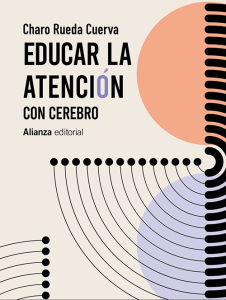
On the Media
Artículo en Ciencia Cognitiva: Desarrollo de la atención en el primer año de vida
Artículo en The Conversation: La conversación puede transformar el mundo
Artículo en InfoLibre: Un estudio apunta que reducir la pobreza mejora la actividad cerebral en la infancia
Entrevista para la agencia SINC: Con la atención se puede ‘hackear” la mente de las personas y cómo conducen sus vidas
Entrevista a Charo Rueda en El diario de la Educación: El cerebro del alumnado tendrá unas habilidades que se determinan, en gran medida, por la educación que recibe
Entrevista a Charo Rueda en Ideal: Lo grave de “El juego del calamar” es que la violencia se pone en un contexto infantil
Transference

Neuromindset is a certified Spin-off at the University of Granada linked to the Developmen al Cognitive Neuroscience Lab. Neuromindset is specialized on the development of science based tools to help parents and educators boost children’s brain development, attention, self regulation and socioemotional skills.

Contact
If you are interested in participating in studies carried out in our lab, or would like to write us for any other reason you can use any of the following contact information:
labncd@ugr.es
Phone
+34 695937900
Lab Location
The lab is located at floor 0 of the CIMCYC. Room: Lab 24
CIMCYC Location
Campus de Cartuja s/n, 19071 Granada, Spain
